Syria government behind Sarin attack - UN investigators
- Published
Abo Rabeea says he is still suffering from the suspected chemical weapons strike in Khan Sheikhoun
UN human rights investigators have concluded that the Syrian Air Force carried out a chemical weapons attack on a rebel-held town in April.
At least 83 people died when a Su-22 jet dropped a bomb filled with the nerve agent Sarin on Khan Sheikhoun, a report, external by a commission of inquiry says.
Damascus insists the incident was faked and denies using chemical weapons.
The report also says a US strike on a mosque complex in March that killed 38 people violated international law.
The investigators allege that US forces failed to take all feasible precautions to avoid or minimise incidental loss of civilian life and damage to civilian objects.
The US says the strike, which targeted al-Qaeda-linked militants in the village of Jinah, killed only one civilian and was proportional to a valid military objective.
An Organisation for the Prohibition of Chemical Weapons (OPCW) fact-finding mission confirmed, external in June that people in Khan Sheikhoun were exposed to Sarin on 4 April. However, its mandate did not include identifying who was responsible.
An OPCW-UN Joint Investigative Mechanism has been given that task, but the UN human rights investigators say there are already "reasonable grounds" to believe that government forces attacked the town.
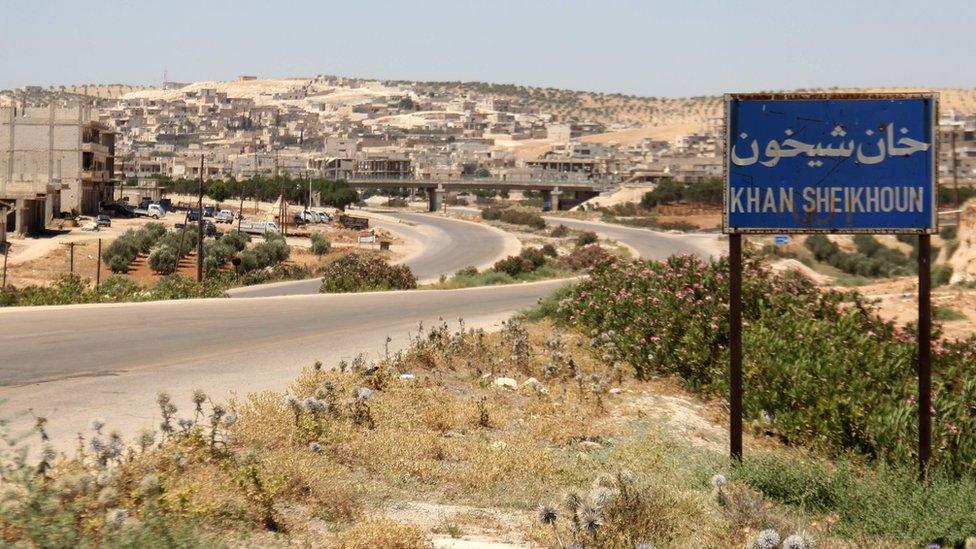
The investigators dismiss Russia's assertion that a terrorist chemical weapons depot was struck
They say that interviews with 43 witnesses, victims and first responders, along with early warning reports, indicate that a Su-22 aircraft conducted four air strikes that day. Only Syrian forces operate such aircraft, which are easy to recognise and difficult to mistake for anything else, they note.
Based on crater analysis and satellite imagery, the investigators conclude that three conventional bombs and a Sarin bomb consistent with those produced by the former Soviet Union were dropped.
They also dismiss statements from the government's ally, Russia, which has asserted that the Syrian Air Force struck a terrorist chemical weapons depot.
It is extremely unlikely that an air strike would release Sarin potentially stored inside such a structure in amounts sufficient to explain the number of casualties, they say.

First, they explain, the explosion resulting from an air strike would have burnt off most of the agent inside the depot or forced it into the rubble where it would have been absorbed, rather than released in significant amounts into the atmosphere.
Second, the facility would still be heavily contaminated today, for which there is no evidence, they add.
Third, people with symptoms consistent with Sarin exposure began appearing hours before the time Russian officials gave for the Syrian Air Force strike.
President Bashar al-Assad has said the incident in Khan Sheikhoun - which prompted the US to launch a missile strike on an airbase - was a "fabrication".
He has insisted his forces destroyed their entire chemical arsenal under a deal brokered by the US and Russia after a Sarin attack outside Damascus in 2013.
Staffan de Mistura says Syria's opposition must accept it has failed to win the civil war
In a separate development on Wednesday, UN special envoy Staffan de Mistura told Syria's opposition that it must be realistic and accept it has failed to win the six-year civil war. However, he also stressed that the government should not think that it can "simply announce victory".
Mr de Mistura said the imminent fall of so-called Islamic State's strongholds of Raqqa and Deir al-Zour meant the "moment of truth" was approaching for all those involved in the conflict to agree a political solution.
- Published28 June 2017
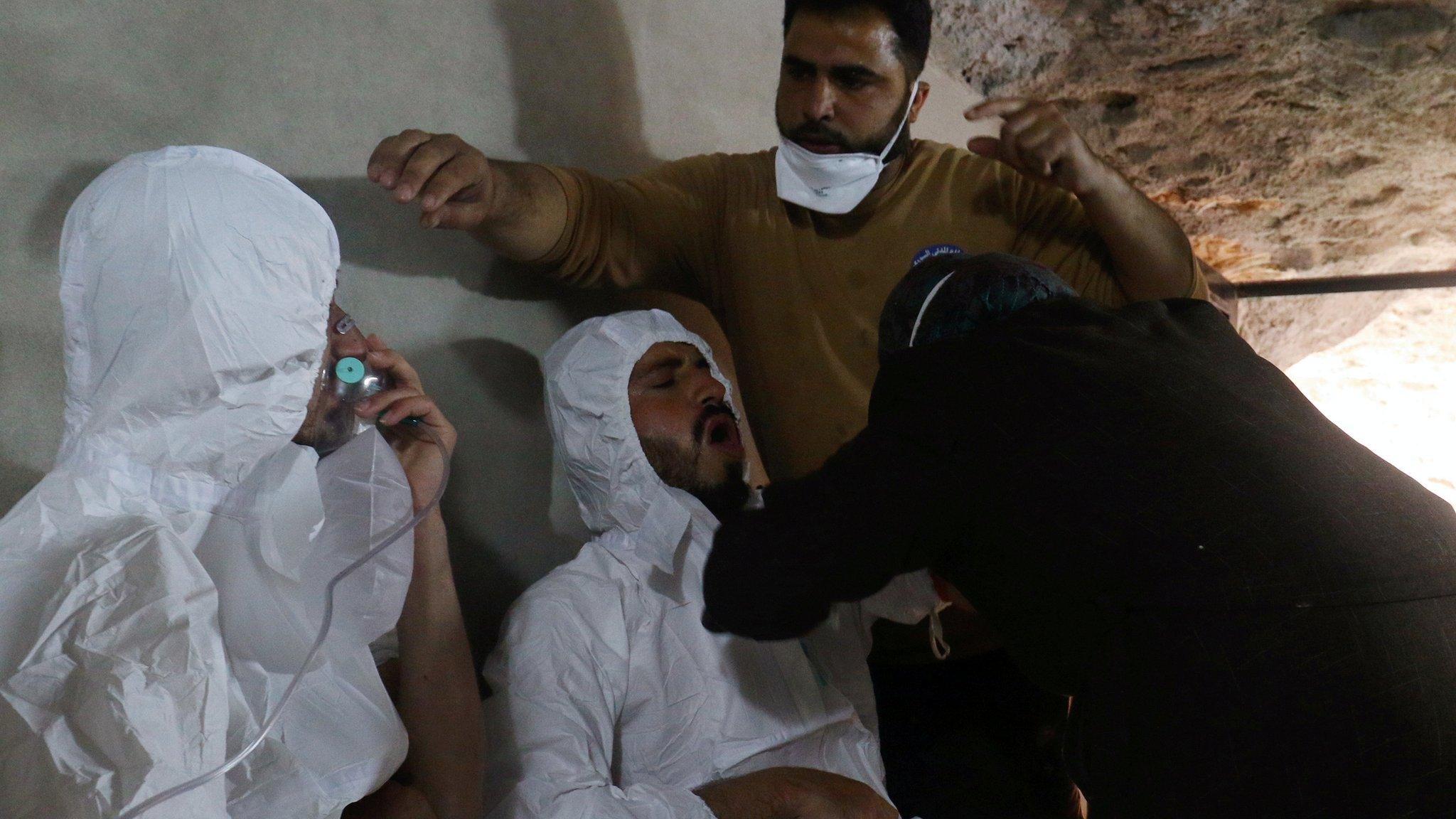
- Published4 May 2017
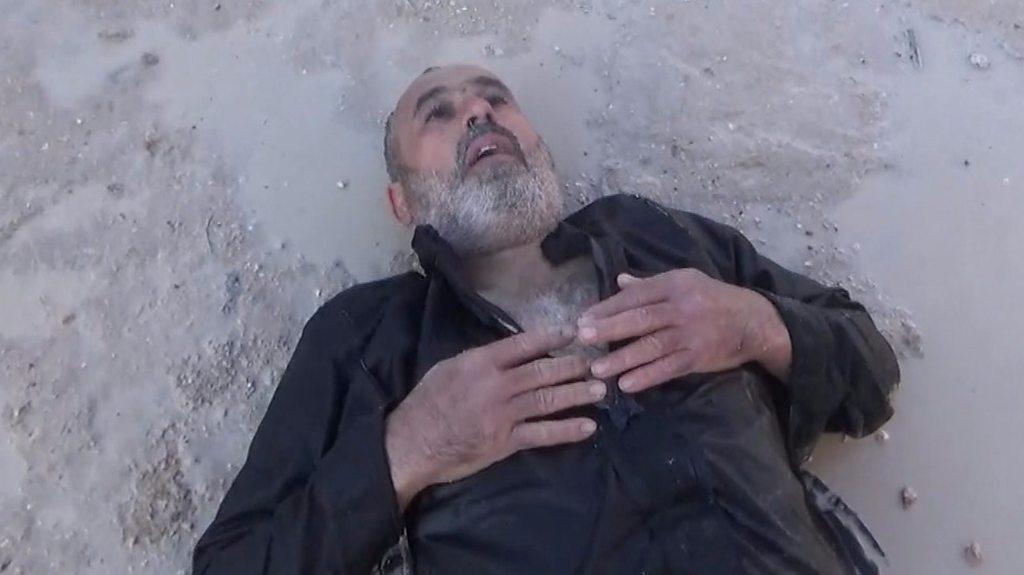
- Published4 May 2017
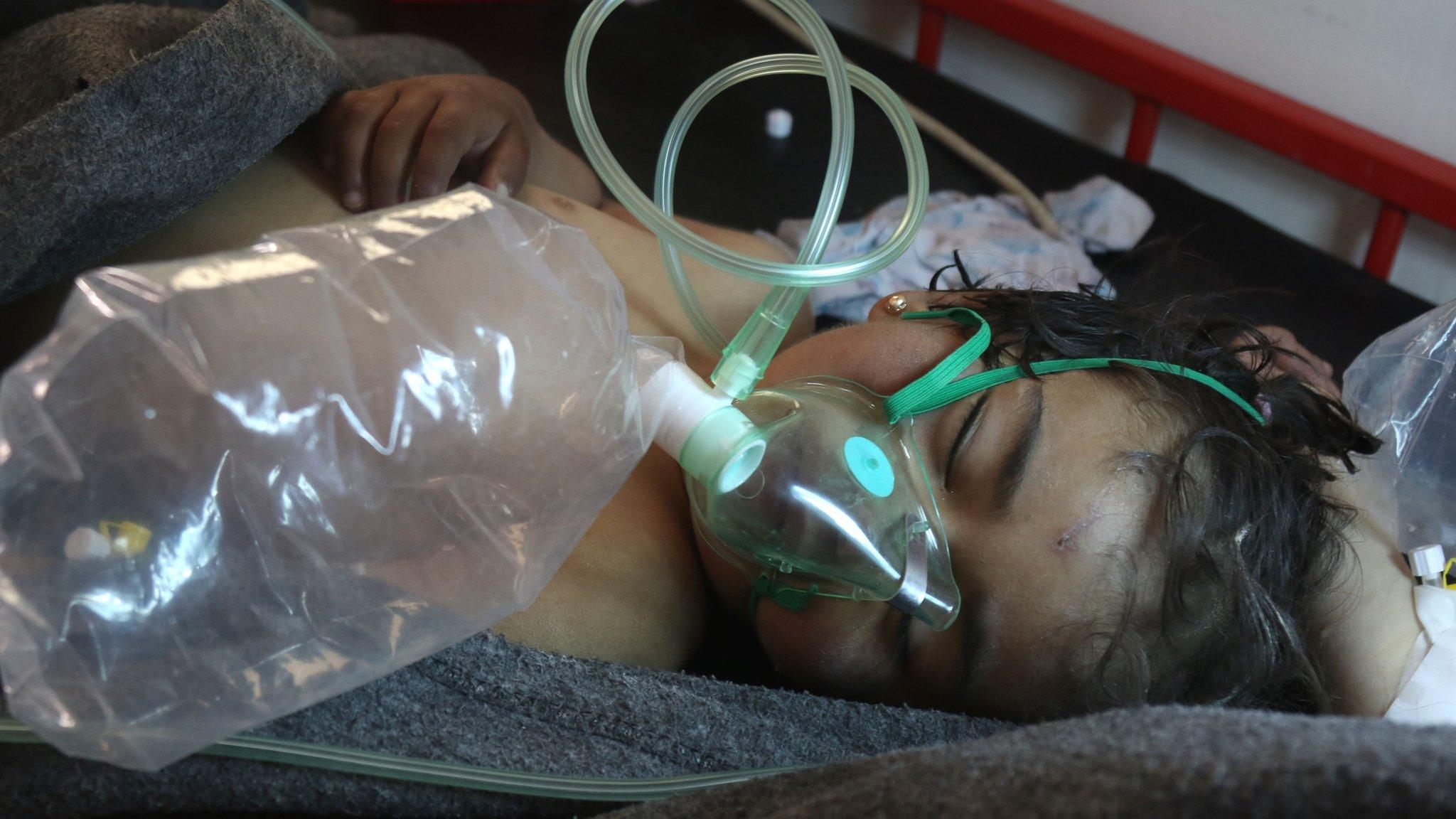
- Published26 April 2017
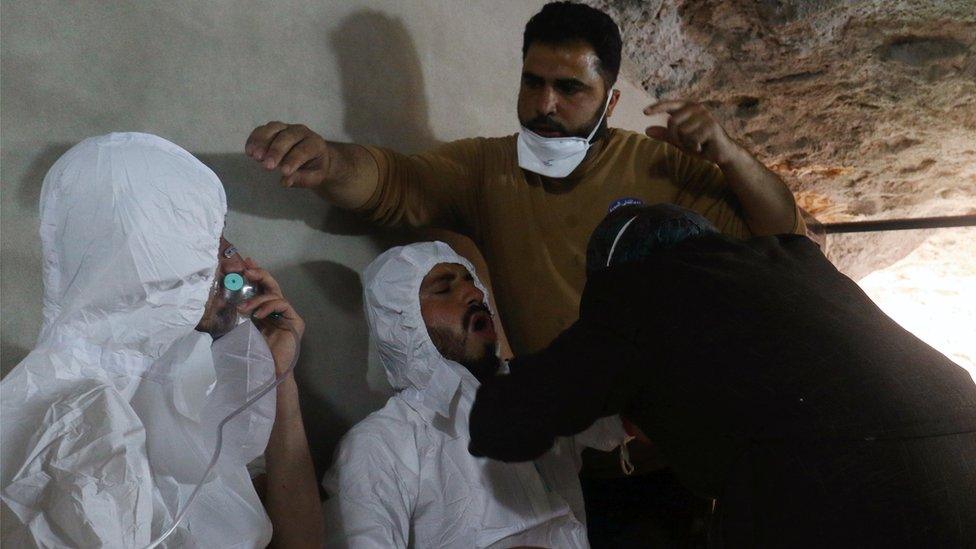
- Published13 April 2017
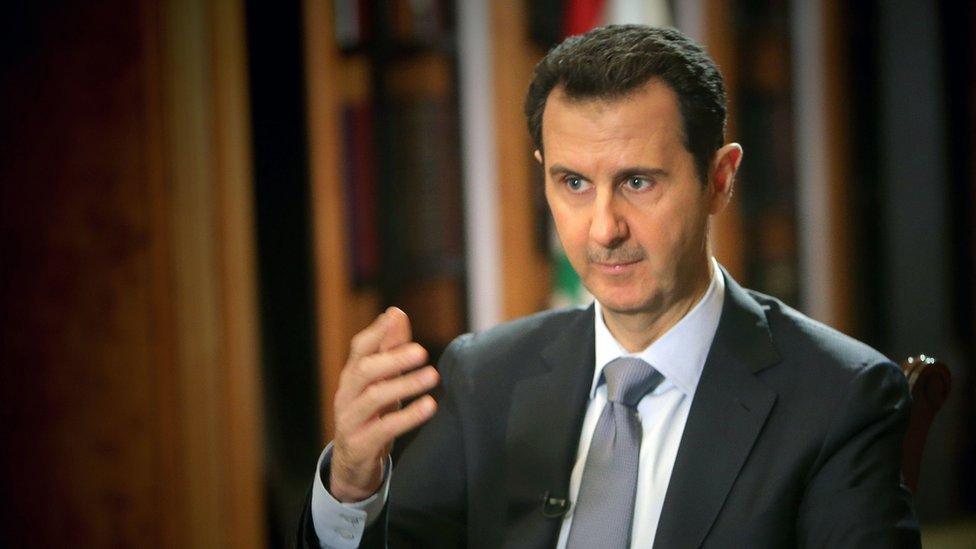
- Published2 May 2023
